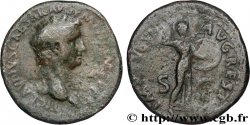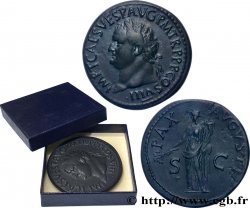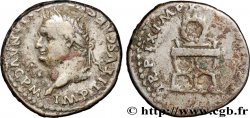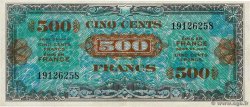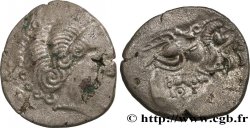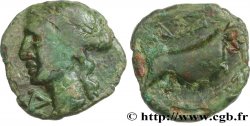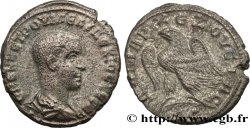fme_692214 - TITUS Médaille, Reproduction d’un As de Rome
Not available.
Item sold on our e-shop (2025)
Price : 220.00 €
Item sold on our e-shop (2025)
Price : 220.00 €
Type : Médaille, Reproduction d’un As de Rome
Date: 1974
Mint name / Town : Monnaie de Paris
Quantity minted : 100
Metal : silver
Millesimal fineness : 950 ‰
Diameter : 62,5 mm
Orientation dies : 6 h.
Weight : 155,6 g.
Edge : lisse + corne 1 + 1974 + EE/C
Puncheon : Corne 1 (1880 -)
Coments on the condition:
Patine grise hétérogène. Présence de coups et rayures
Catalogue references :
Obverse
Obverse legend : IMP T CAES VESP AVG P M TR P COS VIII.
Obverse description : Tête laurée de Titus à gauche (O*1).
Obverse translation : “Imperator Titus Cæsar Vespasianus Augustus Pontifex Maximus Tribunicia Potestate Consul octavum”, (L’empereur Titus césar Vespasien auguste, grand pontife, revêtu de la puissance tribunitienne, consul pour la huitième fois).
Reverse
Reverse legend : PAX - AVGVST/ S|C.
Reverse description : Pax (la Paix) drapée, debout à gauche, tenant un corne d’abondance de la main gauche et une branche d’olivier de la main droite.
Reverse translation : “Pax Augusti”, (La Paix de l’auguste).
Commentary
Comme l’indique la tranche, il s’agit d’un exemplaire éditeur pour une édition limitée à 100 médailles.
Titus reçoit son huitième consulat le 1er janvier 80, alors que Domitien prend son septième.
As the edge indicates, this is a publisher's example for a limited edition of 100 medals. Titus received his eighth consulship on January 1, 80, while Domitian took his seventh
Titus reçoit son huitième consulat le 1er janvier 80, alors que Domitien prend son septième.
As the edge indicates, this is a publisher's example for a limited edition of 100 medals. Titus received his eighth consulship on January 1, 80, while Domitian took his seventh







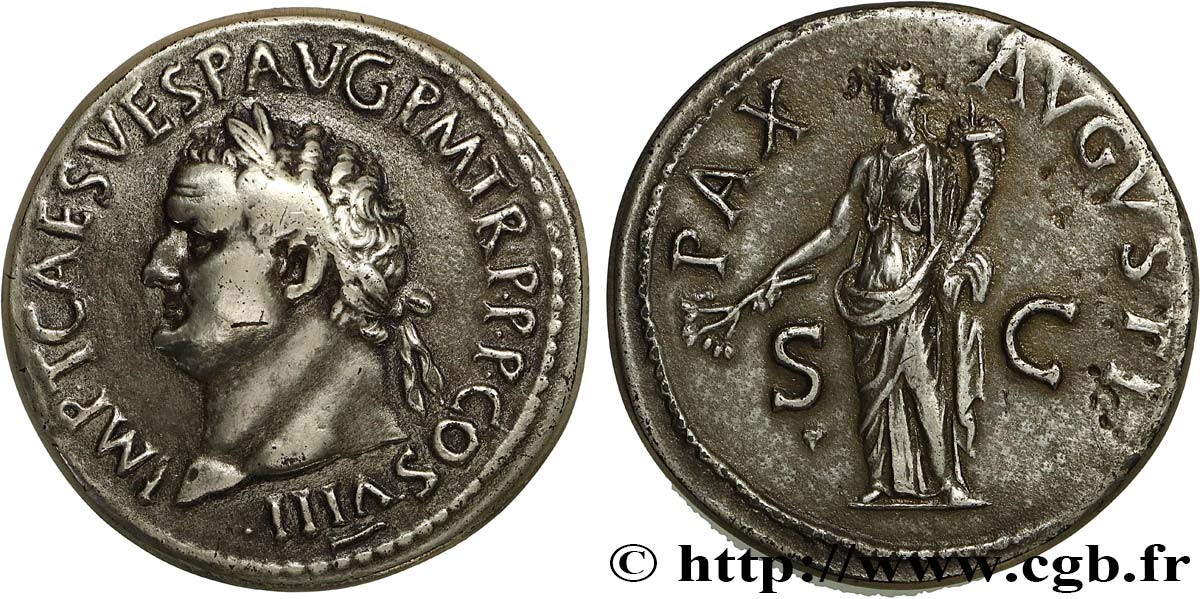
 Report a mistake
Report a mistake Print the page
Print the page Share my selection
Share my selection Ask a question
Ask a question Consign / sell
Consign / sell
 Full data
Full data
